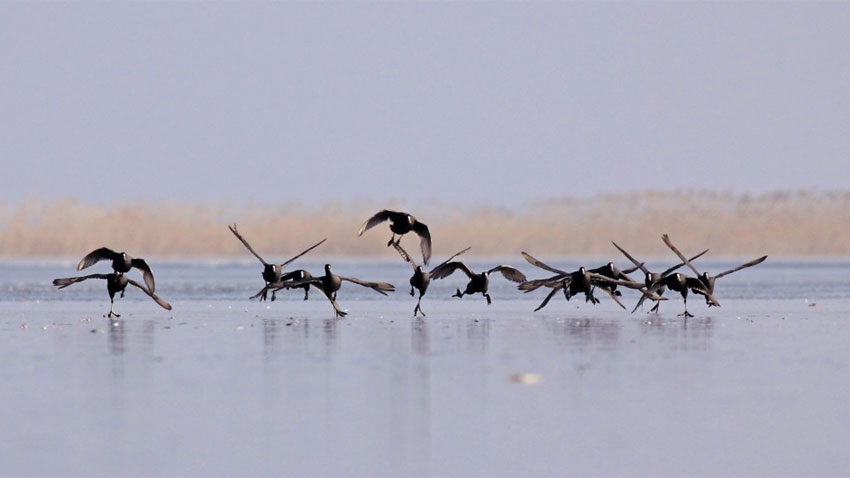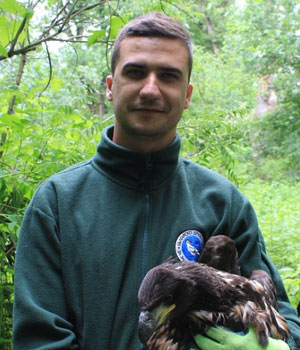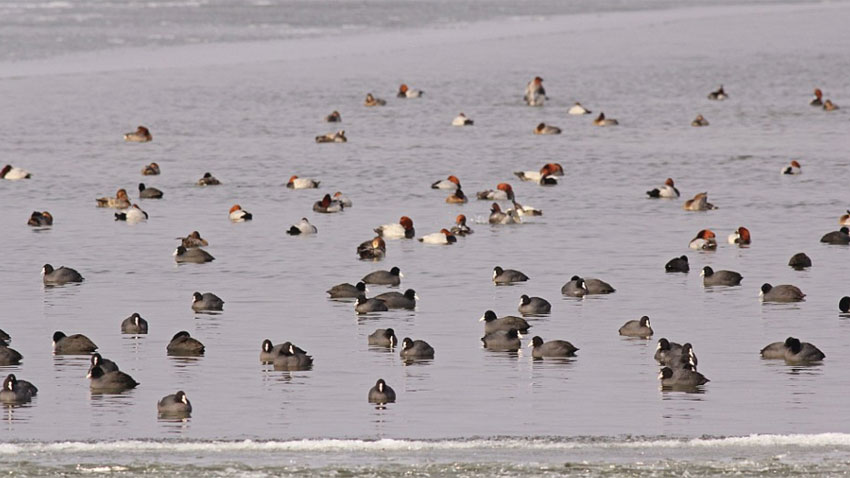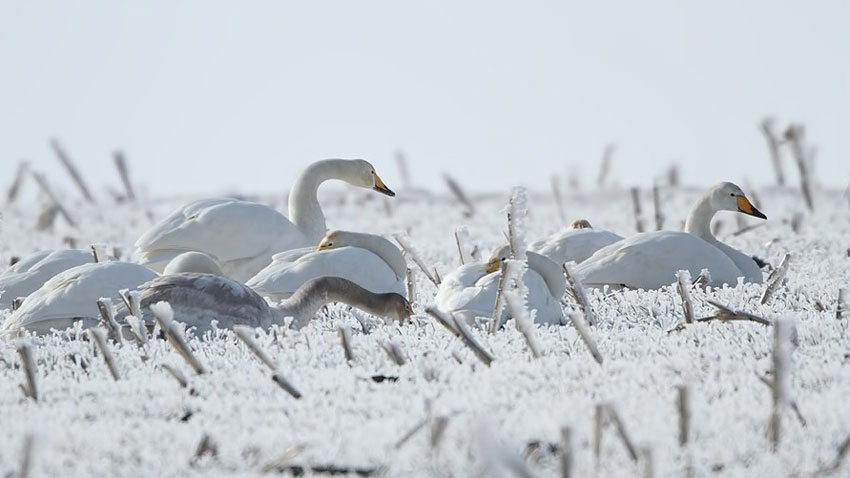The numbers of waterbirds in the world have been monitored since 1967. This census is deemed one of the most large-scale nature conservation events, with more than 15,000 people taking part. It is conducted simultaneously across the whole of Europe and North Africa, the aim being to count waterbirds with maximum accuracy. Internationally, the data are summarized by Wetlands International.

Many species of waterbirds opt to spend the winter in Bulgaria; some of them are on the endangered species list. The census provides a picture of the state of waterbird populations and the state their winter habitats are in, some of which have been includes in the Natura 2000 network of nature protection areas. The 41st mid-winter waterbird count was conducted in this country from 13 to 15 January by forty-one teams of experts and volunteers from the Bulgarian Society for the Protection of Birds, the Executive Environment Agency, the Regional Inspectorate of Environment and Water, hunting associations as well as representatives of NGOs.
Here is Svilen Cheshmedjiev, Bulgarian Society for the Protection of Birds coordinator of the census with more about the initiative:
 “Our teams and volunteers worked under very difficult conditions. We visited over 200 wetland zones, including along the banks of the Danube and the Black Sea coast, different dam lakes, fisheries, rivers. We counted significantly more waterbirds than any of the previous years. This is probably due to the very low temperatures in Northern Europe which pushed the birds from Central Europe towards Bulgaria. 80 percent of the data processed show that in mid-January there were 700,000 waterbirds spending the winter in this country. Near Bourgas, Shabla, Dourankoulak and Varna we counted 400,000 greater white-fronted geese (Anser albifrons) and around 44,000 red-breasted geese (Branta ruficollis). This is an endangered species which spends practically the entire winter in Bulgaria and we have a responsibility to protect them. Other interesting observations we made was of a large concentration of lesser white-fronted geese and one barnacle goose (Branta leucopsis). We have observations of the greater flamingo (Phoenicopterus roseus) in the Eastern Rhodopes as well as a record number of white-headed ducks (Oxyura leucocephala) at a location they are not usually found at – Rozov Kladenets dam lake,” Cheshmedjiev says.
“Our teams and volunteers worked under very difficult conditions. We visited over 200 wetland zones, including along the banks of the Danube and the Black Sea coast, different dam lakes, fisheries, rivers. We counted significantly more waterbirds than any of the previous years. This is probably due to the very low temperatures in Northern Europe which pushed the birds from Central Europe towards Bulgaria. 80 percent of the data processed show that in mid-January there were 700,000 waterbirds spending the winter in this country. Near Bourgas, Shabla, Dourankoulak and Varna we counted 400,000 greater white-fronted geese (Anser albifrons) and around 44,000 red-breasted geese (Branta ruficollis). This is an endangered species which spends practically the entire winter in Bulgaria and we have a responsibility to protect them. Other interesting observations we made was of a large concentration of lesser white-fronted geese and one barnacle goose (Branta leucopsis). We have observations of the greater flamingo (Phoenicopterus roseus) in the Eastern Rhodopes as well as a record number of white-headed ducks (Oxyura leucocephala) at a location they are not usually found at – Rozov Kladenets dam lake,” Cheshmedjiev says.

The more interesting species counted include Dalmatian pelicans (Pelecanus crispus), an endangered species which only nests in Bulgaria in Sreburna lake and on the island of Persin (a Bulgarian island in the Danube), sea eagles (Haliaeetus), tundra swans (Cygnus columbianus), horned grebes (Podiceps auritus), red-crested pochards (Netta rufina) and white-eyed pochards (Aythya nyroca), European shags (Phalacrocorax aristotelis) and many others. Many of the waterbirds included in this count are endangered or protected species on a world scale, that is why it is so important to know exactly how many of them there are, whether they are to be found in Bulgaria or elsewhere, as well as where they spend the winter because some of these wetlands are not protected and the birds could easily fall prey to hunters or poachers.

Looking into the state the birds spending the winter here are in is particularly important in view of climate change – a problem looming large everywhere in the world that concerns each and every one of us. Destitute birds or birds in an advanced state of exhaustion were found in a number of locations and this means they need to be provided with peace and quiet – a difficult task in these climatic conditions.
“The results can be interpreted as an index of the changes taking place in the environment and we must, once again focus our attention on the role played by birds as a vital indicator of the state of the environment we all live in,” says Svilen Cheshmedjiev.

English version: Milena Daynova
Photos: bspb.orgPresident Rumen Radev's "Support a Dream" charity initiative has attracted the support of musicians, stylists, designers and donors, the head of state's press secretariat said. A prom hosted by the president each spring brings together high school..
The Speaker of the National Assembly Natalia Kiselova will today award the winners of the 32nd Children's Easter Festival in the Serbian town of Bosilegrad. The children will compete in three categories – for the strongest, most beautiful and most..
A colorful Easter celebration under the slogan “Let’s sing and dance on Easter, on the square” will take place today in the open air in the town of Stara Zagora. A number of folklore groups and singers from the region will take care of the good..
The FameLab International Science Communication Competition aims to discover, train and give a platform to the world’s most promising new scientists. The..
The "Roses of Bulgaria" festival will be held at the Museum of Emigration in Sao Paulo, Brazil on May 10. The cultural event is organized by the..
On May 10 and 11, the interactive science and technology centre "TechnoMagicLand" at Sofia Tech Park will host a national Rubik's Cube speed-solving..

+359 2 9336 661
